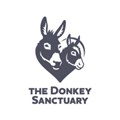Story
The Donkey Sanctuary has embarked on a project in Kenya and Ethiopia, areas affected by the worst drought in 60 years, to find sustainable ways to support donkeys and the communities they serve and to bring the importance of their role during a crisis to the attention of humanitarian aid agencies.
Working animals become crucially important when food and water are scarce, as they enable people to travel to water sources and emergency distribution centres and bring back supplies for their families. Donkeys become a family’s lifeline during a crisis.
Yet the humanitarian aid agencies responding to drought and famine, if they recognise animals at all, tend to focus on those which are reared for milk or meat, and make no provision for donkeys or other working animals. So far this has been the case in the current drought.
Stephen Blakeway, our director of international operations says:
"Our teams are experienced in working with poor communities and their donkeys. For example, they can improve harness so that donkeys are protected from injuries caused by carrying heavy loads, and provide hoof care to stop donkeys going lame while walking long distances. They can help with nutrition and simple veterinary treatments, training community animal health workers and providing preventative treatments, and carry out other simple interventions to improve people's knowledge and skills relating to donkey care.
"These activities become particularly important at a time when people are reliant on their donkeys for transport, and - unlike the emergency provision of food and water - they will keep benefiting the communities throughout the crisis and into the recovery phase."
Another vital element of our work is the gathering of evidence to convince the humanitarian aid agencies that working animals, including donkeys, are necessary to the survival of agricultural communities.
Stephen continues: "We want to see the official guidelines issued to these agencies altered to include provision for donkeys and mules. We already know from our work in Africa that as well as providing essential transport for emergency supplies, donkeys are often used to plough the land once the rains return, in place of oxen which have starved to death.
"Farmers in areas of Kenya, which were hit by drought in 2009, told us they could not have recovered from the crisis without their donkeys."
